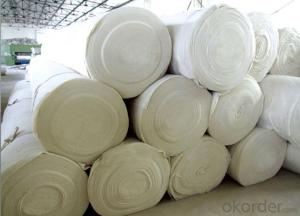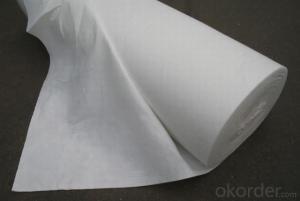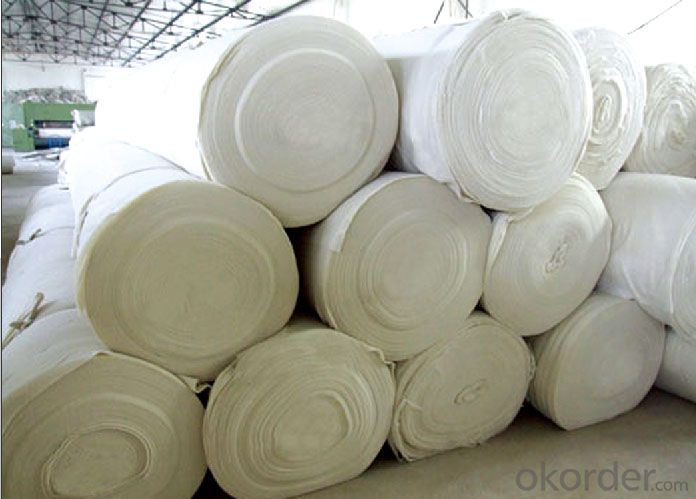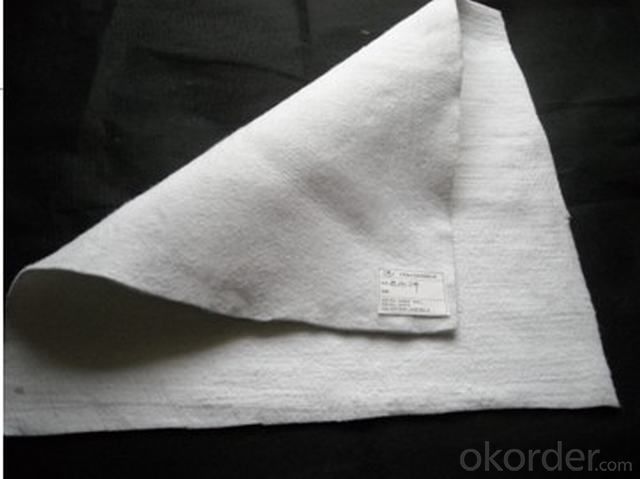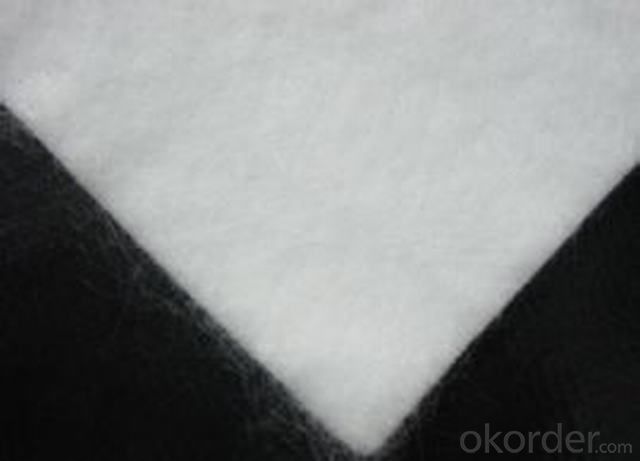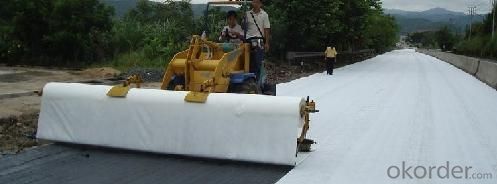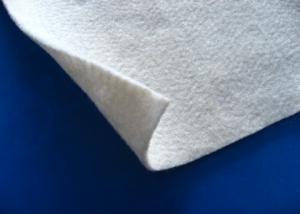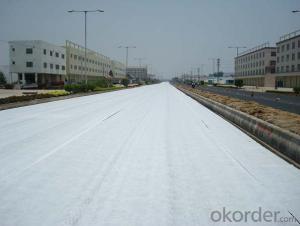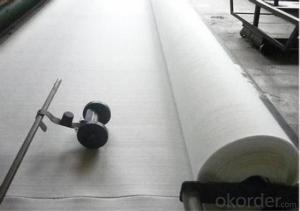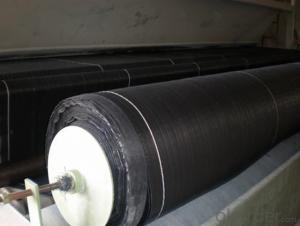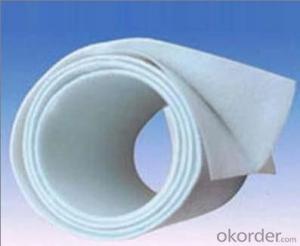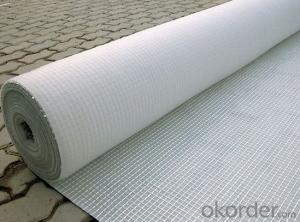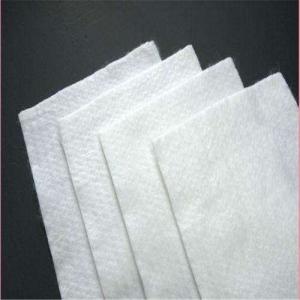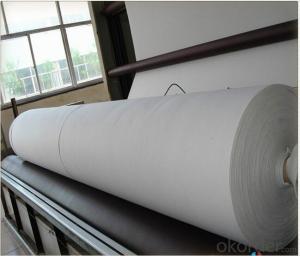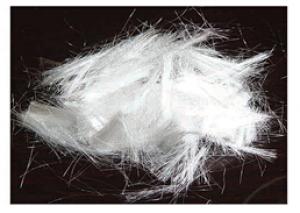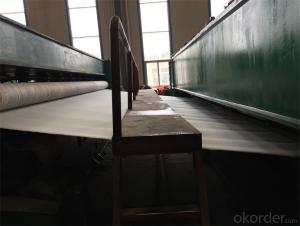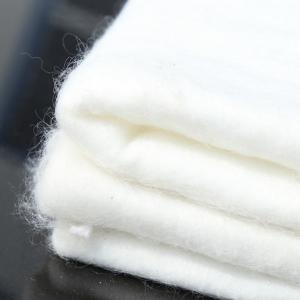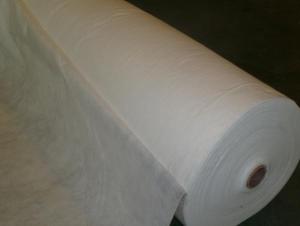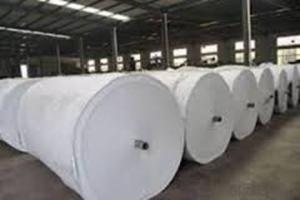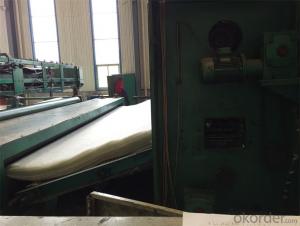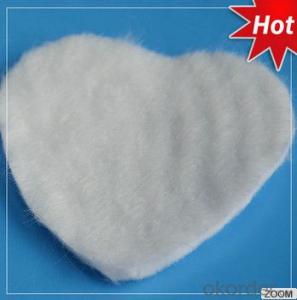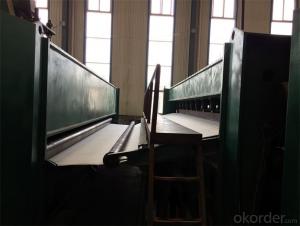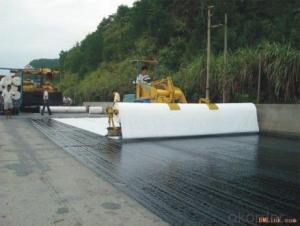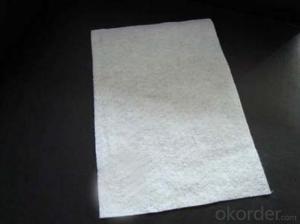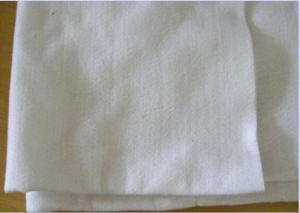Geotextile Semarang - High Quality Non-Woven Geotextile for Tunnel Engineering
- Loading Port:
- Qingdao
- Payment Terms:
- TT or LC
- Min Order Qty:
- 20000 m²
- Supply Capability:
- 1500000 m²/month
OKorder Service Pledge
OKorder Financial Service
You Might Also Like
Functions of Non-woven Geotextile for Tunnel Engineering:
1.Separation
The isolation of the railway dregs and the roadbed, roadbed and the soft base, surface of the airdrome and parking lot and the groundsill, different dam materials. It isolates the soil and the gravel of two kinds different.granule pathway from the groundsill or other buildings.
2.Reinforcement
The highway, railway, soil-stone dam, breakwater, airport, backfill soil of retaining wall, slope protection, etc in which distributes the earth stress, prevents the side-displacement of the earth body and improves the earthbody stability.
3.Protection
It prevents the bank from being washed out, protects the bank and the bottom, prevents the water and soil from being washed away
Technical Data Sheet of Short fiber Nonwoven Geotextile for Tunnel Engineering:
Item | Art No. | 1 | 2 | 3 | 4 | 5 | 6 | 7 | 8 | 9 | 10 | 11 |
Unit weight, g/m2 | 100 | 150 | 200 | 250 | 300 | 350 | 400 | 450 | 500 | 600 | 800 | |
Weight tolerance, % | -8 | -8 | -8 | -8 | -7 | -7 | -7 | -7 | -6 | -6 | -6 | |
Thickness, ≥mm | 0.9 | 1.3 | 1.7 | 2.1 | 2.4 | 2.7 | 3.0 | 3.3 | 3.6 | 4.1 | 5.0 | |
Break strength, ≥kN/m | 2.5 | 4.5 | 6.5 | 8.0 | 9.5 | 11.0 | 12.5 | 14.0 | 16.0 | 19.0 | 25.0 | |
CBR burst strength, ≥kN | 0.3 | 0.6 | 0.9 | 1.2 | 1.5 | 1.8 | 2.1 | 2.4 | 2.7 | 3.2 | 4.0 | |
Tear strength, ≥kN | 0.08 | 0.12 | 0.16 | 0.20 | 0.24 | 0.28 | 0.33 | 0.38 | 0.42 | 0.46 | 0.60 | |
Width tolerance, % | -0.5 | |||||||||||
Break elongation, % | 25-100 | |||||||||||
EOS O90, mm | 0.07-0.2 | |||||||||||
Vertical permeability coefficient, cm/s | K×(10-1-10-3)K=1.0-9.9 | |||||||||||
FAQ:
What is the main application of Short fiber Nonwoven Geotextile for Tunnel Engineering?
The main application of our Short fiber Nonwoven Geotextile for Tunnel Engineering is as follows: The highway, railway, soil-stone dam, breakwater, airport, backfill soil of retaining wall, slope protection, etc.
Where is your main market?
Our main market is in Middle East, South America and some African countries.
What is your advantages for Short fiber Nonwoven Geotextile for Tunnel Engineering?
One of the largest manufacturer of Short fiber Nonwoven Geotextile for Tunnel Engineering with advanced equipment, big production capacity and excellent quality.
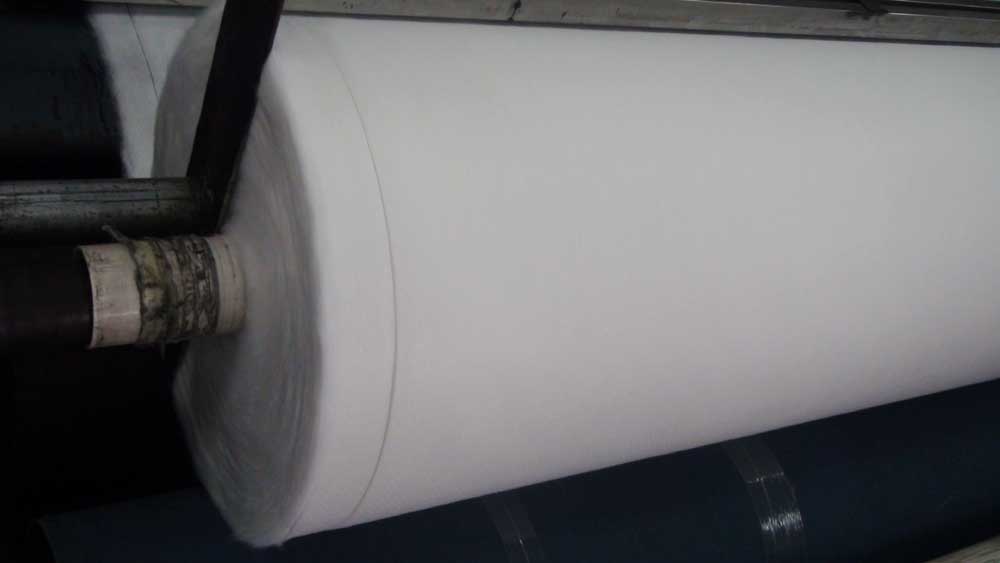
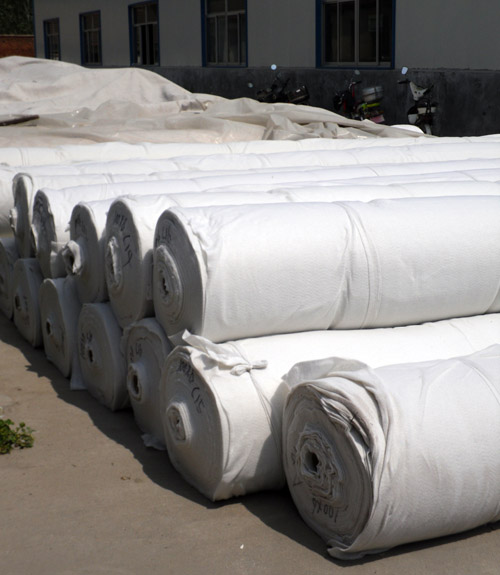
- Q: Are geotextiles resistant to punctures and tears?
- Yes, geotextiles are generally designed to be resistant to punctures and tears. They are made from strong materials that provide durability and can withstand external forces, making them an effective solution for various applications requiring such resistance.
- Q: Can geotextiles be used in pond liner systems?
- Yes, geotextiles can be used in pond liner systems. Geotextiles are often used as an additional layer in pond liner systems to provide protection, filtration, and stability. They can help prevent punctures, control soil erosion, and improve water quality by filtering out fine particles.
- Q: What are the key considerations for geotextile installation in areas with high seismic activity?
- The key considerations for geotextile installation in areas with high seismic activity include selecting a geotextile material that can withstand strong ground shaking, ensuring proper anchoring and securing of the geotextile to prevent displacement during seismic events, evaluating the potential for liquefaction and designing appropriate drainage systems to mitigate its effects, conducting thorough site investigations to understand the soil conditions and potential for ground movement, and regularly monitoring and inspecting the geotextile installation for any signs of damage or failure due to seismic activity.
- Q: what is the purpose of geotextile on gabion walls.?
- Geotextiles are fabrics associated with soil, earth or rocks. Gabions were earth filled barricades meant to halt enemy fire during battle. I'm guessing geotextiles on gabion walls more effectively hold back the earth or filler. They might have well suited permeability or retentive qualities for gabions. There are a few other definitions for gabions. But this is the militaristic definition. Gabions are also used in dams and such. In this case, geotxtiles might have good properties for being submerged in water and still retaining whats inside the gabions.
- Q: What equipment is geotextile equipment?
- This I do not how clear, and detailed you can go to Long Yun machinery manufacturers to see, his home is specialized in producing this equipment manufacturers, hoping to help you to adopt.
- Q: Road Central isolation belt (5 m wide) Drainage No design Waterproof geotextile laying and gravel blind ditch, are design flaws?
- Should be it, the general design will have this. If you need to contact me, see the information
- Q: PET geotextile is what?
- PET for the polyester on behalf of the name, PET geotextile is also divided into many kinds, such as: broken geotextile, filament geotextile, filament weaving, etc., I understand only these. Look at what you mean.
- Q: How do geotextiles help with reinforcement of soil slopes?
- Geotextiles help with the reinforcement of soil slopes by providing stability and preventing erosion. They are placed between layers of soil to distribute the load and strengthen the slope. The geotextiles act as a barrier, separating different soil layers and preventing the movement of fine particles. This helps to improve the overall strength and integrity of the slope, reducing the risk of landslides and soil erosion.
- Q: Can geotextiles be used in shoreline restoration projects?
- Yes, geotextiles can be used in shoreline restoration projects. Geotextiles are commonly used to stabilize and protect shorelines by preventing erosion, promoting vegetation growth, and controlling sediment migration. They act as a barrier, allowing water to pass through while preventing soil and sediment loss. By using geotextiles, shoreline restoration projects can effectively enhance and preserve the natural ecosystem.
- Q: Are geotextiles resistant to fungal growth?
- Yes, geotextiles are generally resistant to fungal growth. They are designed to be durable and have low organic content, which makes them less susceptible to fungal colonization. Additionally, geotextiles are often treated with fungicides during manufacturing to provide further protection against fungal growth. However, the resistance may vary depending on the specific type and quality of geotextile used.
Send your message to us
Geotextile Semarang - High Quality Non-Woven Geotextile for Tunnel Engineering
- Loading Port:
- Qingdao
- Payment Terms:
- TT or LC
- Min Order Qty:
- 20000 m²
- Supply Capability:
- 1500000 m²/month
OKorder Service Pledge
OKorder Financial Service
Similar products
Hot products
Hot Searches
Related keywords
